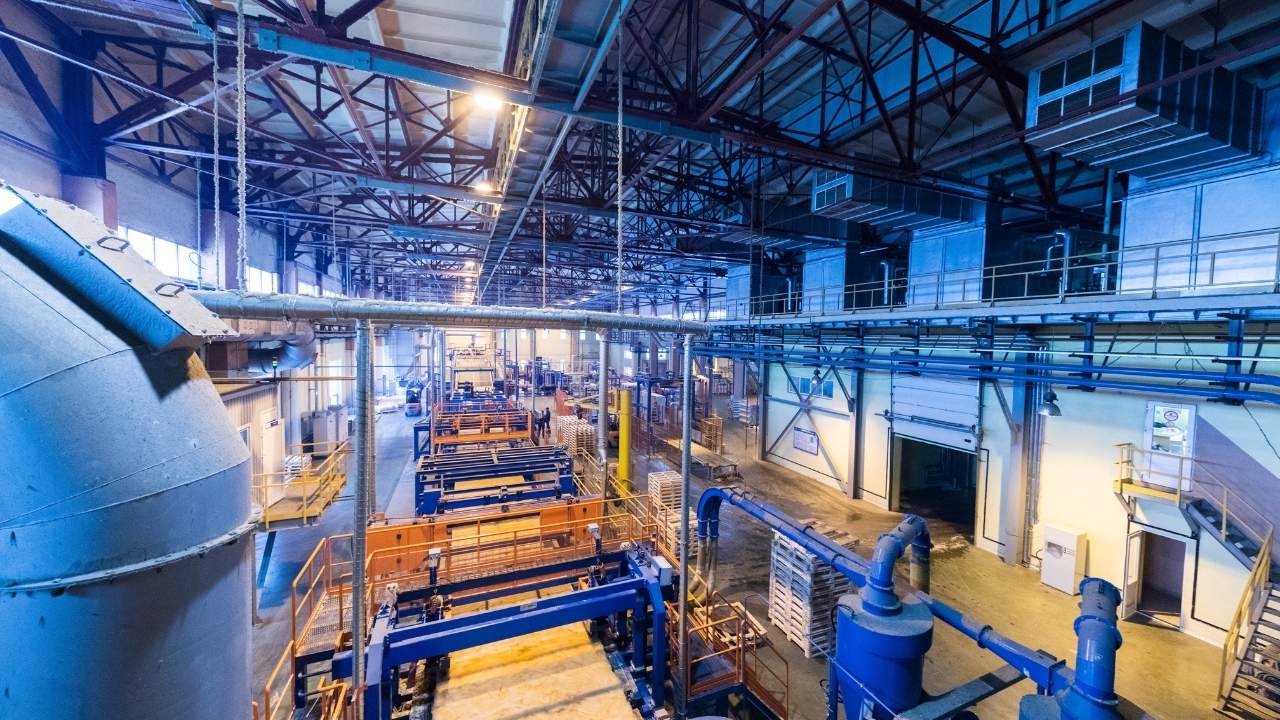Effective financial management is the backbone of successful logistics operations. With complex supply chains spanning multiple continents, vast transportation networks, extensive warehouse infrastructures, and thin profit margins, modern logistics companies cannot afford inefficiencies or lack of visibility into costs. Robust, specialized accounting practices provide the informational foundation for data-driven decision-making, regulatory compliance, and sustained profitability across logistics organizations.
This comprehensive guide examines the fundamentals of logistics accounting, key focus areas for analysis, operational best practices, technologies for automation and analytics, common obstacles faced by practitioners, and the overarching importance of accounting visibility to strategic leadership.
Defining Logistics Accounting
Logistics accounting involves tracking, normalizing, analyzing, and reporting all financial data related to the physical movement and storage of goods within a company’s global supply chain operations. It differs from more generic financial or managerial accounting in its tighter focus on transportation, warehouse, inventory, and distribution activities using standard and customized data models.
Domain expertise in logistics operations, including freight forwarding, customs brokerage, last-mile delivery, fulfillment, warehousing, distribution center management, and other disciplines is required to capture relevant operational metrics and cost information, allocate shared expenses across business units, and provide actionable insights tailored to key decision makers.
Comprehensive logistics accounting provides not only standard income statements, cash flow reports, and balance sheets reflecting the organization’s overall financial health but also — and more importantly — granular visibility into the transactional movement of inventory and operational costs across the logistics network. This role has grown increasingly complex and business-critical as supply chains stretch across more geographies, jurisdictions, and intermediaries while customer expectations around order lead times and delivery flexibility place greater urgency on efficiency.
Key Focus Areas of Logistics Accounting
Inventory Management
Proper inventory valuation and optimization of stock levels reduce overall carrying costs while ensuring availability and service levels. Detailed inventory tracking provides visibility into turnover rates, spoilage/obsolescence, shrinkage, safety stock buffers, seasonality, and other critical metrics at tier one, two, and three warehouses as well as yard storage locations. This guides decisions around warehouse utilization, network optimization, and inventory reduction initiatives.
Transportation & Distribution
Comprehensive cost analysis modeling at multiple levels for freight, shipping, customs brokerage, import/export duties, fleet fueling, network transit times, and other domestic and international distribution cost centers identifies opportunities to improve economies of scale, enhance vendor negotiations, refine order routing logic, and reduce overall cost per unit.
Warehousing & Storage
A granular understanding of storage utilization rates across individual facilities and the warehouse network, occupancy costs per pallet, labor expenses by function, inventory access frequency, and other key metrics prevents bottlenecks, mitigates capacity risks from demand spikes or inventory peaks, and assigns cost allocations by business unit/product line.
Order Fulfillment
Highly detailed cycle time analysis paired with cost breakdowns of staffing, automation investments, packing materials, customer service expenses, and order accuracy metrics aids data-driven decision-making around scaling order fulfillment operations, offshoring/nearshoring, infrastructure investments, and labor optimization.
Vendor & Supplier Management
End-to-end vendor cost analysis including unit price audits and total cost of ownership calculations provides visibility into comparative vendor and contract manufacturer performance in terms of pricing, product quality, service reliability, lead times, and landed costs. This enables performance benchmarking and informed supplier relationship management.
Profitability Analysis
Multi-dimensional profitability analysis examining both direct and allocated indirect costs across product lines, customer segments, distribution channels, geographic regions, brands, and other business variables guides strategic planning around the most profitable resource allocation.
Compliance & Financial Reporting
Strict adherence to industry regulations around freight payments and auditing, customs sureties, excise tax collection, accounting standards, financial statement disclosures, and other jurisdictional requirements is essential for global logistics firms. Integrated accounting software solutions ensure compliance while providing audit trails.
Logistics Accounting: Best Practices for Efficiency & Standardization
Leading logistics and 3PL firms leverage these accounting process best practices:
- Structured Chart of Accounts: A well-designed, globally scalable chart of accounts model optimized for logistics improves visibility across all supply chain entities while enabling flexibility for customized analytics.
- Integrated Accounting Software: End-to-end financial software suites deeply integrate with TMS, WMS, ERP, CRM, fixed asset registers, HR platforms, and other operational systems for unified data flows across accounting, improving integrity and access.
- Regular Auditing: Standardized internal audits augmented by external audits from accredited financial/compliance firms help verify baseline reporting accuracy, identify control gaps or policy issues, and reduce the risk of major regulatory infractions while supporting continuous improvement.
- Detailed Cost Analysis: Granular cost accounting at the shipment, route, product, geography, channel, business unit, and other levels provides visibility beyond high-level aggregated financials to guide procurement, network optimization, and tariff decisions.
- Budgeting & Forecasting: Sophisticated FP&A models for flexible, driver-based budgeting, rolling forecasts, capacity modeling, and predictive analytics expand on historical data and trends to improve decision-making via accurate cost projections.
- Automation: Automating repetitive, manually intensive accounting tasks in areas like transactional posting, report generation, invoice reconciliations, and expense allocations frees up departmental bandwidth for value-added analysis while improving standardization.
Leveraging Technology & Automation
Leading logistics firms leverage these emerging technologies to streamline operations, improve cost efficiency, and provide leadership with decision-grade analytics:
- Cloud Accounting Platforms: Shared, internet-based accounting platforms improve accessibility and collaboration while maintaining strict access controls, permissions, and change logs across business units – enabling unified ledgers.
- TMS & WMS Integrations: Building direct data integrations between transportation/warehouse management systems and accounting provides systematic, near real-time capture of operational activity for downstream reporting.
- Predictive Analytics: Machine learning uncovers non-intuitive trends, cost drivers, and scenarios from vast, fast-changing accounting data sets providing statistically validated, probability-based recommendations.
- RPA Accounting Bots: Software-based robotic process automation systems streamline repetitive accounting workflows like report generation while reducing errors and lowering labor expenses.
Key Performance Indicators
Leading logistics accountants continuously monitor these types of financial and operational key performance indicators:
- Inventory Turnover: The number of times average inventory levels are sold and replaced during 12 months indicates pricing, marketing, logistics, and restocking efficiency while minimizing expired/obsolete items.
- Distribution Cost Per Unit Sold: Granular analysis of this metric by product line, geographic market, distribution channel, period, and other variables guides network optimization and business planning.
- Warehouse Utilization Rates: Granular cube utilization percentages coupled with storage density KPIs reveal actionable opportunities to consolidate inventory holdings across locations while maintaining service levels.
- Order Cycle Times: Order fulfillment and last-mile delivery cycle times demonstrate customer service levels and constraints across infrastructure, staffing, and order processing capabilities.
- On-Time Delivery Rates from Suppliers: The overall percentage of raw materials and components shipments reaching manufacturing facilities or finishing warehouses by the contracted date indicates comparative vendor performance.
- Top Quartile Margin by Product Line: Contribution margin analysis identifies which 25% of products drive a disproportionate percentage of overall profitability to guide decisions around product mix, production scaling, customer segmentation, managed discounts, and other areas.
- Customer Account Profitability: Net margin rankings for top customer accounts guide strategic decisions around managed pricing and discounts, service level tiering, account manager assignments, and retention incentives.
Overcoming Key Challenges in Logistics Accounting
While essential to managing a profitable, efficient, and compliant supply chain, logistics accounting teams must adeptly overcome several key challenges:
- Network Complexity – Global supply chains with thousands of shipments daily across vast transportation networks and numerous interdependencies make accurate cost allocation difficult, requiring supplemental operational data for clarity.
- Currency Fluctuations – The accounting function must account for frequent, volatile currency fluctuations across borders when reconciling international transactions, requiring constant revaluation and hedging strategies.
- Data Integrity Issues – Manual data entry errors, discrepancies between systems, distorted inbound data, and invalid product/customer codes affect baseline accounting accuracy, requiring robust, automated validation processes.
- Cost Allocation Complexity – Spreading shared overhead, administrative, and asset costs across hundreds of product lines, distribution centers, and other business units is an inexact exercise requiring balanced allocation rules between simplicity, fairness, and strategic priorities.
- Frequent Compliance Updates – Regular monitoring of tax codes, customs regulations, accounting standards, international disclosures, and other financial compliance requirements across multiple jurisdictions minimizes the risk of fines, interest charges, or revoked licenses due to accounting oversights or delayed remediation actions.
Conclusion
As the backbone of modern logistics operations, accounting not only ensures baseline compliance, controls fraud risks, and maintains reporting accuracy but also provides the holistic visibility into costs and profit drivers required to guide optimization at both tactical execution and strategic investment levels across global supply chain networks. Leveraging both technology and a skilled talent strategy to implement process best practices around data integrity, flexible analysis, automation, standardization, budgetary controls, and cross-functional collaboration allows firms to maximize efficiency, contain volatility, understand total landed costs, and sustain long-term profitability across their logistics footprint.
Versa Cloud ERP is one of the best ERP software solutions designed specifically for the industry of logistics. Its extensive capabilities for managing inventory, manufacturing, and warehousing as well as seamless integration with third-party logistics (3PL) providers make it a valuable tool for businesses looking to streamline their logistics processes. Versa Cloud ERP not only simplifies financial processes but also improves overall visibility into your supply chain, ensuring that all aspects of your logistics operation are carefully managed as well as financially secure.
With Versa Cloud ERP businesses will benefit from real-time financial information as well as automated cost tracking and a detailed analysis of profitability.
The user-friendly interface and customizable workflows allow flexible adaptation to specific requirements of the business and its sophisticated integration capabilities assure that all logistics functions function seamlessly together. Whether you are managing inventory levels, overseeing warehouse operations, or coordinating with suppliers and vendors, Versa Cloud ERP provides the tools necessary to maintain financial accuracy and operational excellence.
Don’t miss your chance to improve your logistics operation by utilizing top-quality accounting solutions.






